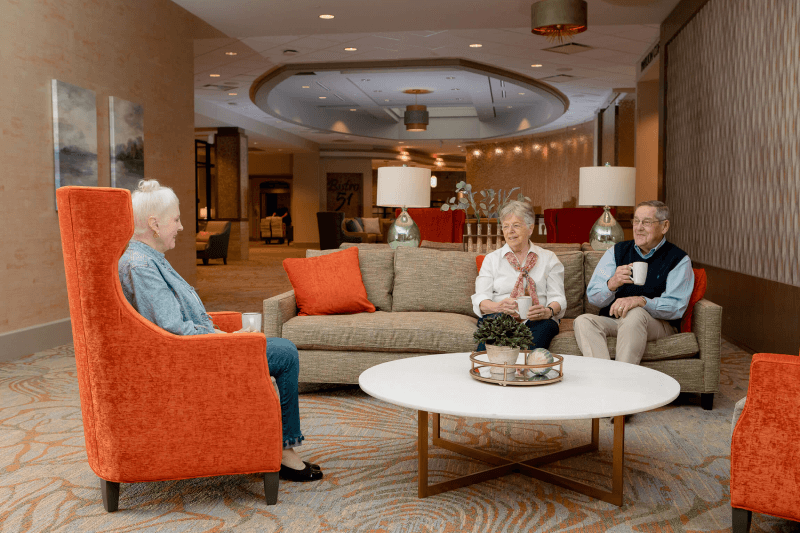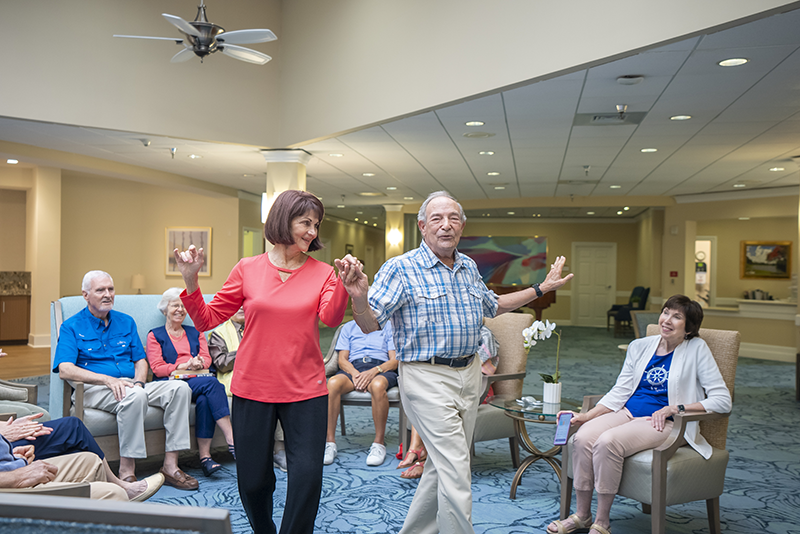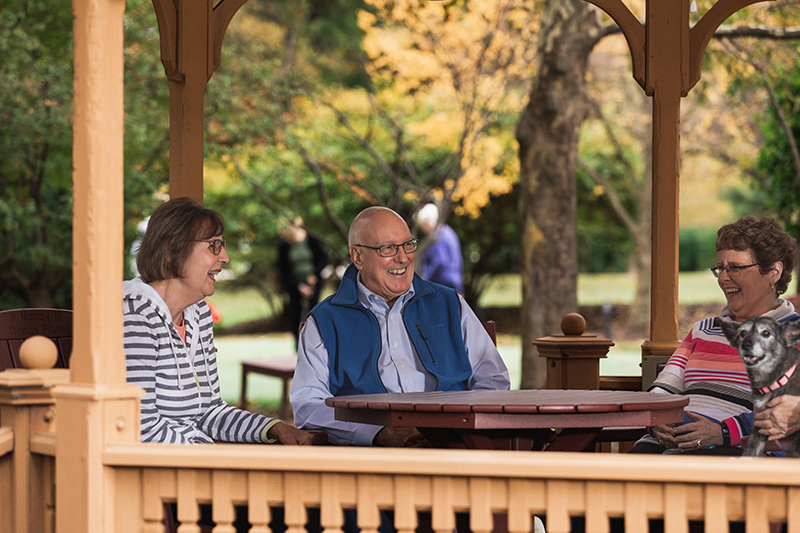The Health Benefits of Social Interactions
Socializing is a fundamental human need. It is how we connect with others, build relationships, and feel a sense of belonging. Socializing has many benefits for our mental and physical health, especially as we get older. Without social interaction, it becomes much more difficult to lead fulfilling, happy lives.
But why is that? How exactly does social interaction provide benefits to us? There is plenty of research that has showcased not just the positive effects of social interaction but also the negative impacts of not socializing enough.
Let’s take a closer look at the health benefits of social interaction and why it’s so essential to our physical and mental health and well-being.

Mental Health Benefits of Social Interaction
One of the biggest benefits of social interaction is how it can help reduce stress and anxiety. Socializing does this by providing a sense of support and connection that you can only get when involved in a community of some sort. This is often because when we are around people we care about, we feel less alone and more capable of coping with difficult challenges.
Additionally, socializing can and does improve our mental and emotional state. Social interaction releases endorphins within your body, which are hormones that have mood-boosting effects. Spending time with friends and family can also help us to feel more positive and optimistic as well as reduce loneliness. As loneliness is a major risk factor for depression and anxiety, socializing can help further reduce the negative effects.
The Physical Health Benefits of Socializing
Mental health is of course vital, but so is physical health. Social interaction helps here as well, as socializing has shown that it can reduce the risk of heart disease. It accomplishes this by lowering blood pressure and cholesterol levels. As socializing also helps to reduce stress, it can additionally reduce one of the major risk factors for heart disease.
Another way socializing helps keep you more physically healthy is that it can improve your immune function. Social interaction can increase the production of antibodies within your system because you’re exposing yourself to different people and situations. This permits your body to experience different environments, allowing it to adapt to a wider range of pathogens.
However, perhaps the biggest benefit that social interaction provides isn’t just physical or mental. This is because socializing can help to protect us from the negative effects of stress and loneliness, which can both shorten our lifespan. Research has shown that people who have strong social ties tend to live longer than those who are socially isolated. Their quality of life also tends to be higher as well. That means it’s not just that people are living longer – they’re also enjoying more fulfilling lives.

More on the Health Importance of Social Interaction for Seniors
As we age, we are more likely to experience social isolation, which can have a negative impact on our health and well-being. A major benefit of social interaction for seniors is it can help to stay connected with their loved ones, feel a sense of belonging, and maintain their cognitive function. Without this support, seniors may not be able to enjoy their retirement years to their fullest.
Social interaction for seniors not only provides many benefits, but it also opens dozens of different possibilities and opportunities. Getting involved in their community is one excellent method. Older adults can volunteer or join a club or a group. They can also take classes to pick up new skills or hone their hobbies. Doing so offers fantastic opportunities to meet like-minded people and make friends.
Another important way to combat loneliness and promote more social interaction is to stay in touch with existing friends and family. A simple phone call can do wonders to lift your mood and get your need for social interaction met. Modern technology has made this easier than ever as well. Social media, video chatting, and online forums are all excellent ways to socialize, especially at a distance.
Attending social events is another surefire method for older adults to enjoy some social interaction. There are many social events that are specifically designed for older adults, such as dances, potlucks, and game nights. If you live in a retirement community, events like these occur with regularity. Additionally, faith-based social events, such as regularly attending a house of worship, can provide opportunities to build community and receive social support.
Finally, remaining active during retirement will help provide you with the energy and ability to engage in social interaction better than you would otherwise. Joining a gym or signing up for fitness classes at your retirement community’s fitness center is a great way to accomplish this. Even better – arrange with some friends to go for a walk every morning. This is an ideal way to keep your body healthy while also reaping the benefits of socialization.

A Final Note on the Need for Social Interaction
The importance of social interaction goes beyond just being for seniors, it’s an essential part of a healthy lifestyle for people of all ages. We need to socialize when we’re young just as much as we do when we’ve become fully grown adults. Social interaction for older adults is even more important, especially if you want to lead a healthy, fulfilled life.
By making an effort to socialize more, we can improve our mental and physical health and live longer, happier lives. Finding ways to increase the amount of social interaction in your life might look like a challenge on the outside, but there are dozens of opportunities that you can avail yourself of if you are combating loneliness.
Don’t feel like you have to go it alone. There’s nothing that says you have to live an isolated life. Reach out to friends and loved ones, mental health professionals, and local communities for the support you need when it comes to reaping the rewards of social interaction.
If you don’t already, consider moving into a retirement community where socialization is a baked in benefit. Acts Retirement-Life Communities offers some of the best in the country.





